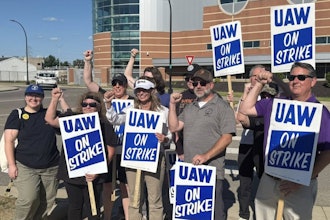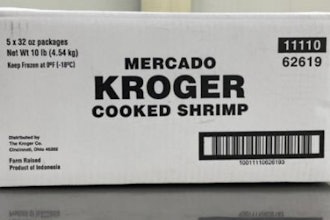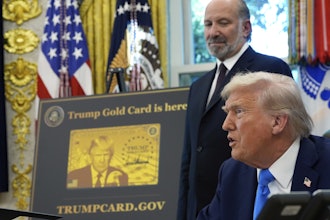
The continuing assault on restrictive and non-competition covenants warrants a third-in-a-series article on the topic. In the March/April 2023 issue of this magazine, I discussed the Federal Trade Commission’s (FTC) new proposed rule (FTC Rule), which would bar almost all non-competition provisions. In my May/June 2023 article, I discussed the National Labor Relations Board’s (NLRB) departure from long-standing federal labor law in the McLaren Macomb decision and subsequent March 2023 guidance from its general counsel, which essentially invalidated severance agreements that included non-disparagement and confidentiality provisions. This third article details the continued full-scale assaults on non-competition covenants, and updates readers on the FTC Rule and McLaren Macomb.
New York Joins Other States in Barring or Limiting Use of Non-Competes
In June 2023, New York joined California, North Dakota, Oklahoma and Washington, D.C., in enacting outright bans on non-competition provisions, with limited exceptions (e.g., buy-sell agreements). Similarly, a growing number of states – like Colorado, Illinois, Maine, Maryland, New Hampshire, Oregon, Rhode Island, Virginia and Washington – have legislatively banned non-competition provisions for employees making less than a specified wage/salary threshold. Other states limit the use of these provisions for certain professions, such as health care workers. Some states, like Iowa, have pending legislation that seeks to ban non-competes unless the employer can establish a “potentially significant impact or consequence . . . attributable to the loss of an employee’s services or work product” or the employer’s trade secrets are at risk.
The FTC Rule
The FTC Rule grew out of President Biden’s Executive Order 14036 directing the FTC to “curtail the unfair use of non-compete clauses or other agreements that might may unfairly limit worker mobility.” The Workforce Mobility Act of 2023, which would largely ban the use non-competes nationwide, was recently reintroduced by a bipartisan group of U.S. senators. This bill follows on the heels of the FTC Rule nullifying non-compete provisions and “de facto” non-competes (e.g., those camouflaged by an unfair or deceptive trade practice under federal law) and would likely dwarf the FTC Rule if passed and signed into law.
The increasing attacks on restrictive covenants – non-competition provisions, severance agreements, and other commonplace clauses, like non-disparagement and confidentiality clauses, suggests that a fresh approach to protection of distributors as to these concerns is warranted.
McLaren Macomb
Following her March Guidance Memo, NLRB General Counsel Jennifer Abruzzo released a second memorandum in May (the May Memo) announcing that “the proffer, maintenance, and enforcement of non-compete provisions in employment contracts and severance agreements violate the National Labor Relations Act (NLRA) except in limited circumstances.” Those “limited circumstances,” as stated in the May Memo, do not include avoiding competition, retaining employees or protecting investments in training employees, but non-competes “could be lawful if they clearly restrict only individuals’ managerial or ownership interests in a competing business.” Additionally, as the National Labor Relations Act (NLRA) does not apply to “supervisors,” the May Memo’s position likely excludes high-level employees.
The May Memo goes on to explain that overbroad non-compete agreements are unlawful because they chill employees from exercising their rights under Section 7 of the NLRA, which protects both unionized and non-unionized employees’ rights to take collective action to improve their working conditions. Specifically, Abruzzo wrote, these agreements interfere with employees’ ability to:
- concertedly threaten to resign to secure better working conditions;
- carry out concerted threats to resign or otherwise concertedly resign to secure improved working conditions;
- concertedly seek or accept employment with a local competitor to obtain better working conditions;
- solicit their co-workers to work for a local competitor as part of a broader course of protected concerted activity; and
- seek employment, at least in part, to specifically engage in protected activity, including union organizing, with other workers at an employer’s workplace.
The May Memo is not binding or precedential law. Instead, it directs NLRB regional directors to submit cases involving arguably unlawful non-competition provisions to the NLRB’s Division of Advice, which decides whether to bring cases to invalidate non-competition provisions. It thus remains to be seen when, and under what fact patterns, the NLRB will do so. The May Memo is a strong signal that the NLRB will aggressively scrutinize non-competes.
Article Part IV?
Depending on legislative action and future common law or agency guidance, one more article on this subject may be warranted, focusing on high-level issues that distributors might value in adapting to this brave new world — one where businesses can effectively operate, protect their good will and competitive advantages, yet not run afoul of legislators and regulators and jurists who have made it clear that they see these covenants as infringing long-standing, legally recognized rights.
Should anyone have questions, follow up inquiries, or concerns about the subject matter of this article, please contact me at 312-840-7004 or [email protected].
Fred Mendelsohn is a partner with Burke, Warren, MacKay & Serritella PC in Chicago.
The information contained in this article is provided for informational purposes only, and should not be construed as legal advice on any subject matter. The author expressly disclaims all liability in respect to actions taken or not taken based on any or all the contents of this article.






















